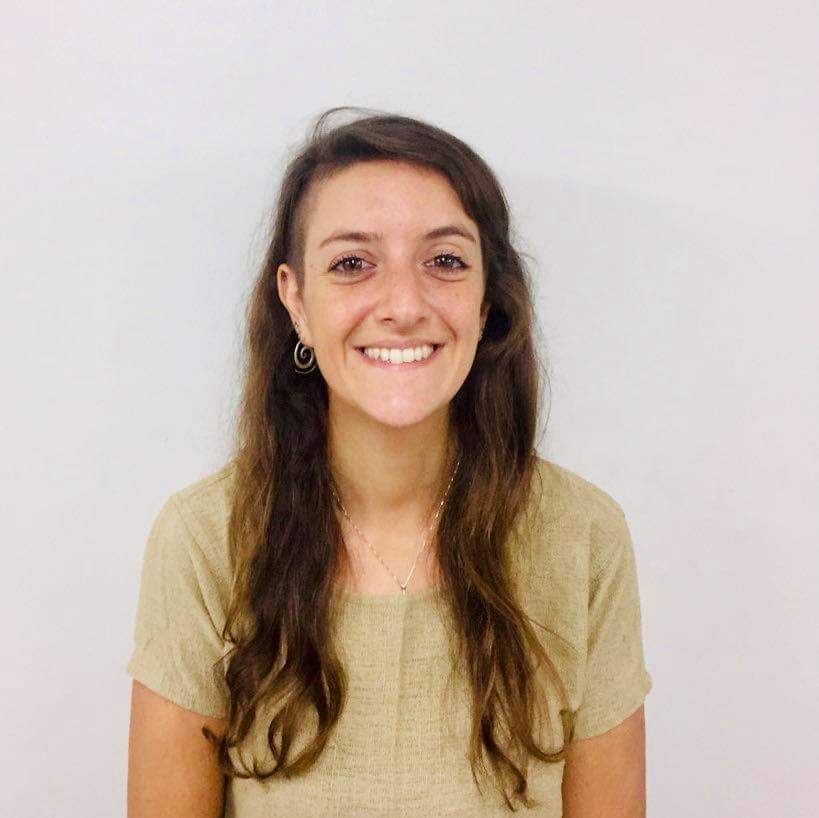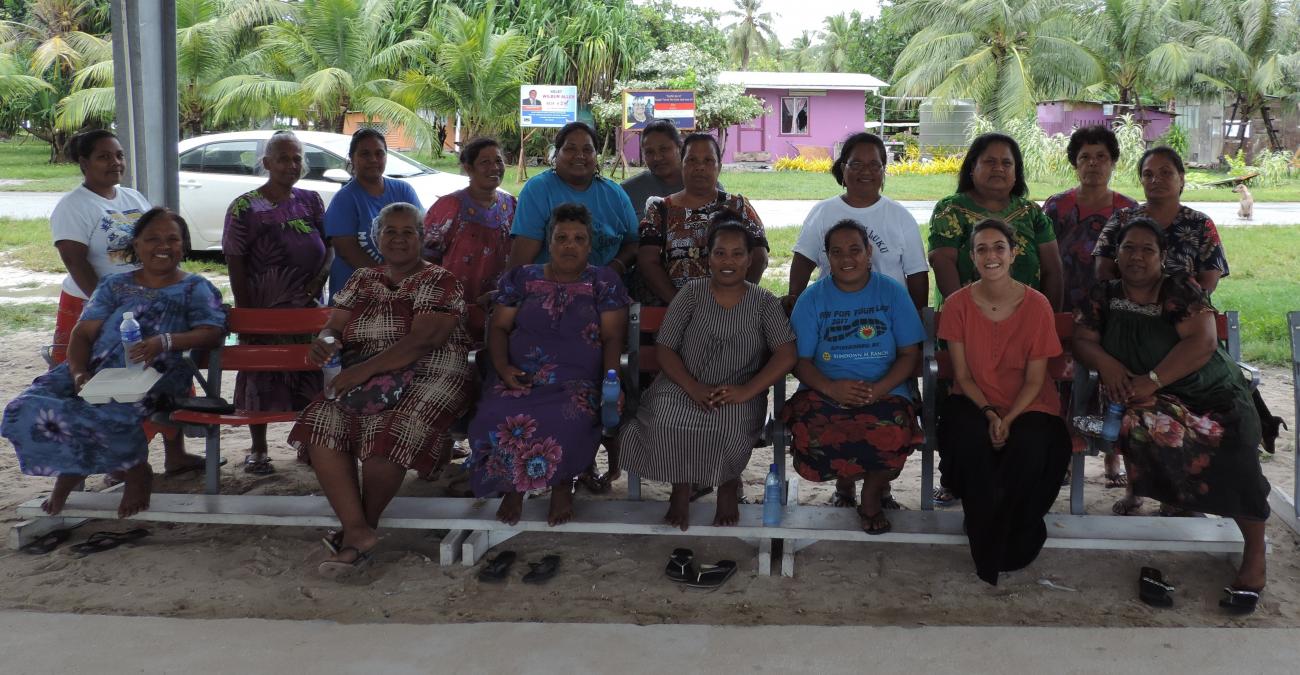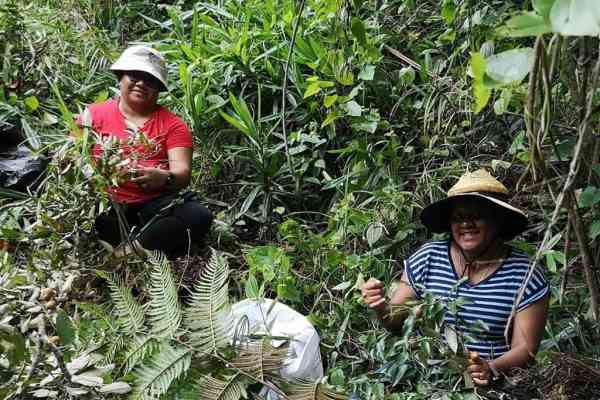Women contribute significantly to their nation’s economies. In the Pacific, this overarches the formal, informal, subsistence and domestic labour activities; yet economically, their contribution often remains invisible or overlooked.
In the field of agriculture, Pacific women face barriers including access to education, capital resources and strict culture and traditional obligations. They are the silent contributors and innovators. But this is slowly changing as women take the frontline in agriculture.
We speak with Flavia Ciribello, the Gender and Value Chains Advisor for Pacific Organic & Ethical Trade Community (POETCom) based at the Land Resources Division (LRD).
Flavia discusses at length their project ‘Building Prosperity for Women Producers, Processors and Women Owned Businesses through Organic Value Chains (BPWP)’ – an Australian Government funded project aimed at empowering women economically in the Republic of Palau, Republic of the Marshall Islands, Federated States of Micronesia (FSM), and Kiribati.
Give us an overview of BPWP and the work it entails?
So, the ‘Building Prosperity for Women Producers, Processors and Women Owned Businesses through Organic Value Chains (BPWP)’ supports the economic empowerment of women in the Republic of Palau, Republic of the Marshall Islands, Federated States of Micronesia (FSM), and Kiribati. This is done by developing value chains that directly benefit women as the producers and suppliers or raw materials, value adders/ processors and business owners.
The main goal is for women to have access to sustainable livelihoods through participation in organic value chains. We work with individuals, families, producers and vendors; and with organic governance structures to promote gender equality and achieve the desired end of investment outcomes.
Where are you currently with the project?
Due to the travel restrictions caused by the COVID-19, we’ve experienced some delays in implementation. However, what we have done is a preliminary assessment to gauge the needs of the people. We know that in the agriculture sector, the women are there, they are present but often their contribution is not ‘seen’. Sometimes women themselves have internalized this lack of recognition, and they do not regard themselves as farmers, but rather as the wife of the farmers. This overall lack of recognition has led to a weak knowledge of their role.
So what we have started to do in these countries is a preliminary gender assessment to make women visible; to see where women are in the agriculture sector, what they are already doing, what challenges are they facing, because if we are able to identify the challenges, we can identify the opportunities and to build our projects on these opportunities.
When we design technical interventions, most of the time we forget the social impacts of these interventions and when we forget the social impacts and component it means we don’t properly recognize the social and gender dimensions of the agricultural sector. Overlooking these dimensions has led to a gender-neutral approach. The assumption that an agricultural technical intervention will equally reach out and benefit all people leads to gender-blind interventions. Such interventions fail to recognize that differences in needs and capacities affect the extent to which women and men benefit from and contribute to the agricultural sector.
What were some disparities found while carrying out the project's preliminary assessment?
In general, women are found more in alternative and subsistence agriculture while men are more present in conventional farming. The inequality in terms of access to capital - men have easier access to assets and financial resources.
Mobility of women is lesser compared to men, men have more access to income generating activities if we compare to women, but women play a key role to food production.
All this issues impact women’s participation in the agriculture sector and value chains in general.
In the Marshall Islands, farming is regarded as a male activity, so knowledge was passed on through the male lines example from the great grandfather to his male descendants. Women were doing the farming, but they couldn’t have access to technical knowledge as men because of the social norms around their daily activities. Often the lack of technical knowledge results into an unequal power in the decision-making process.
We also need to be very clear on what to define women’s economic empowerment because most of the time especially in the Pacific, it goes beyond the money, because women can contribute to the welfare of their family in different ways – which has also an economic return - so we need to acknowledge this in our project research
It goes beyond a cash driven economy.
How will the project help women get increased knowledge and skills to enable them to participate economically?
The project will focus on capacity building activities as well provision of equipment and technologies which can be critical to advance women and their value chains. Capacity building will include agricultural technical knowledge, as well as financial and business management knowledge and access to equipment. Capacity building around how to set up a business, this will facilitate women’s access to marketing opportunities because women sometimes have easy access to local markets, but they don’t know how to access more formal markets, supermarkets, or how to export.
How does the project impact the people at the grassroot level?
Through this project we would like to show and open to women opportunities they can access to better their income generation, and improve their life, in general. For example, when we looked at the different value chains, some of the women provide papaya but all they do is provide the raw product. Through this project they could be potentially able to make jams to get extra income. Something that makes it easy for their lives.
As I said, It’s not all about money. When we talk about women empowerment, its not always about money, it’s also about power and agency.
With this project, we would like to provide women with concrete tools to improve their socio-economic status and reshape unequal power relations.
Would you like to add anything else?
We need to put women role models in the right place, for example if we’re working at a country level, or community level, it would be good to give space to women who have ideas, charisma, vision but they don’t have resources or maybe women don’t have space to shine.
It’s leveraging on what is already there: women who are already doing amazing things.
Within the development sector I can see much more progress- there’s much more funds looking into gender, analysis and research but of course, there’s always room for more.
If you are looking for projects undertaken at SPC and LRD, there are some progresses. For instance, some programmes –like mine - have allocated resources towards recruiting gender specialists, also the way we are collecting data, now its segregated by sex. However, there’s so much that we can do. Like changing mindsets and behaviours around harmful gender and social norms. Of course, gender is about culture and it takes time to change culture. There are some good aspects related to culture that we want to keep but there are some aspects that may discriminate women.


